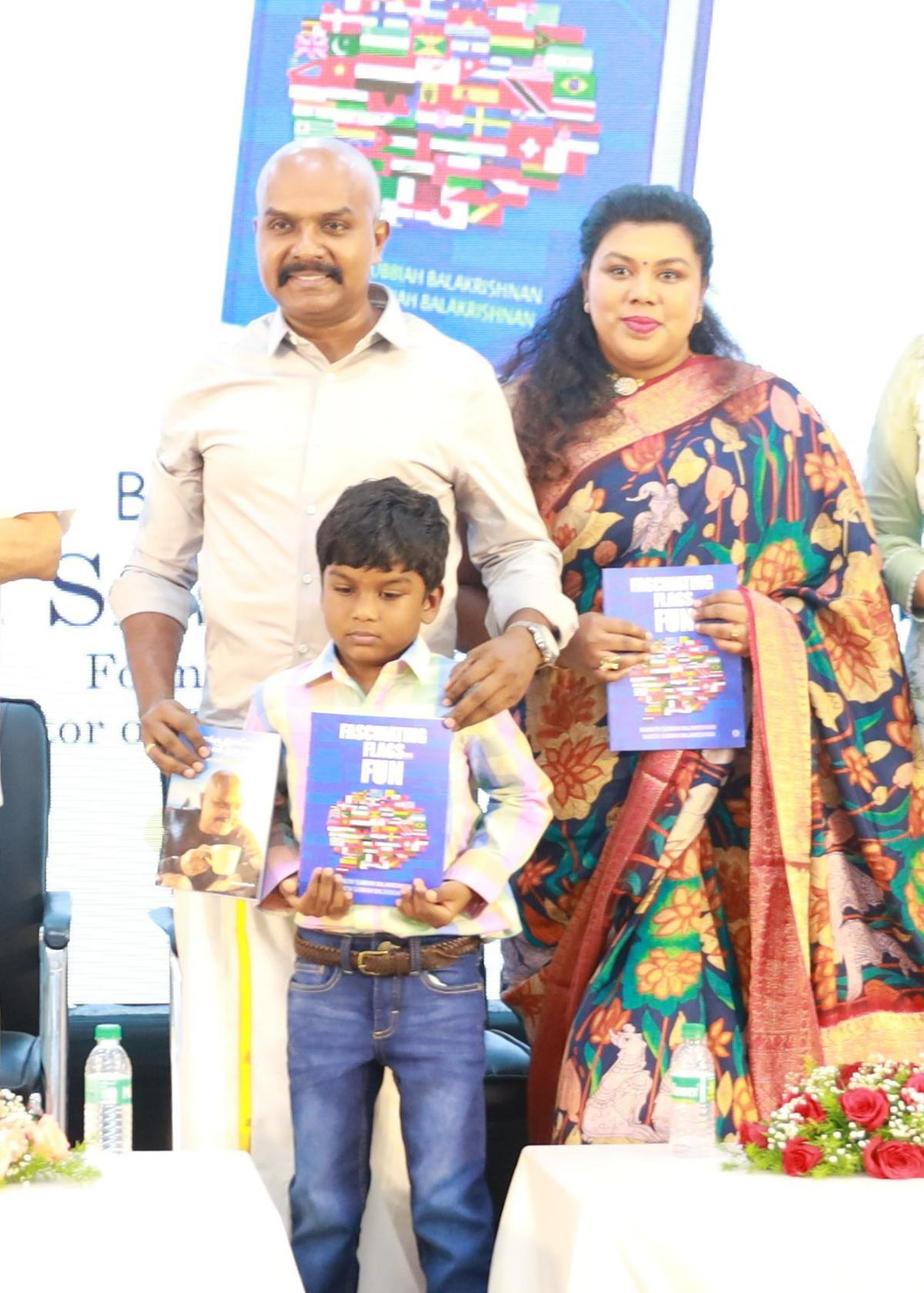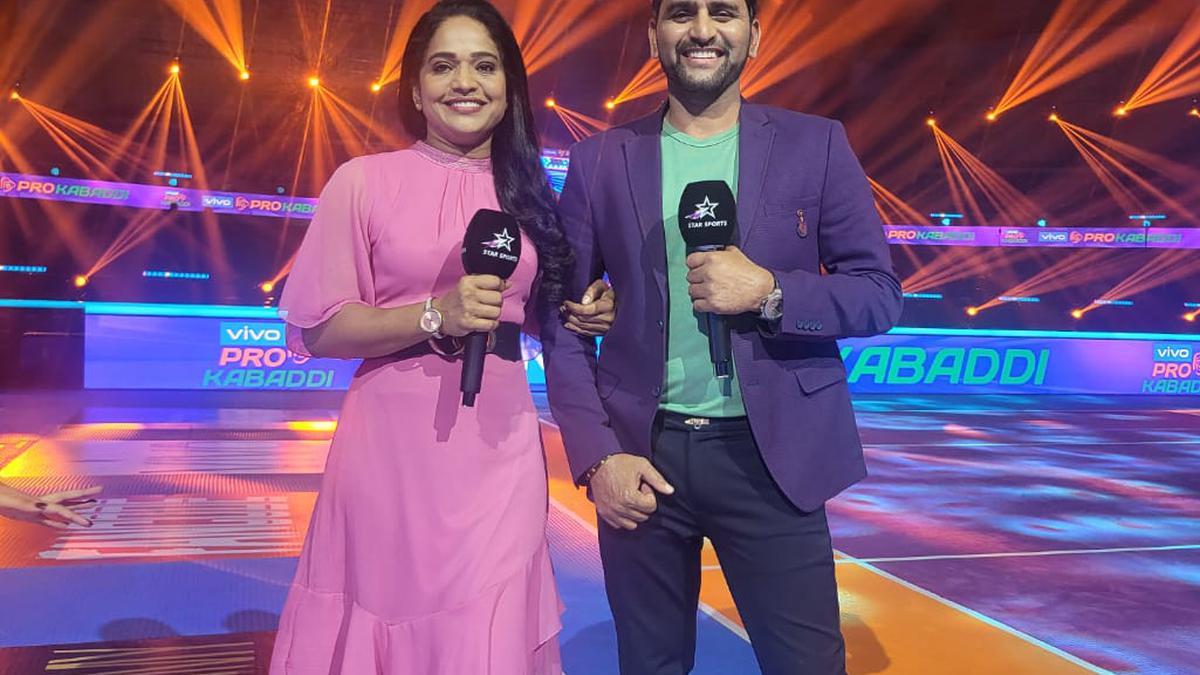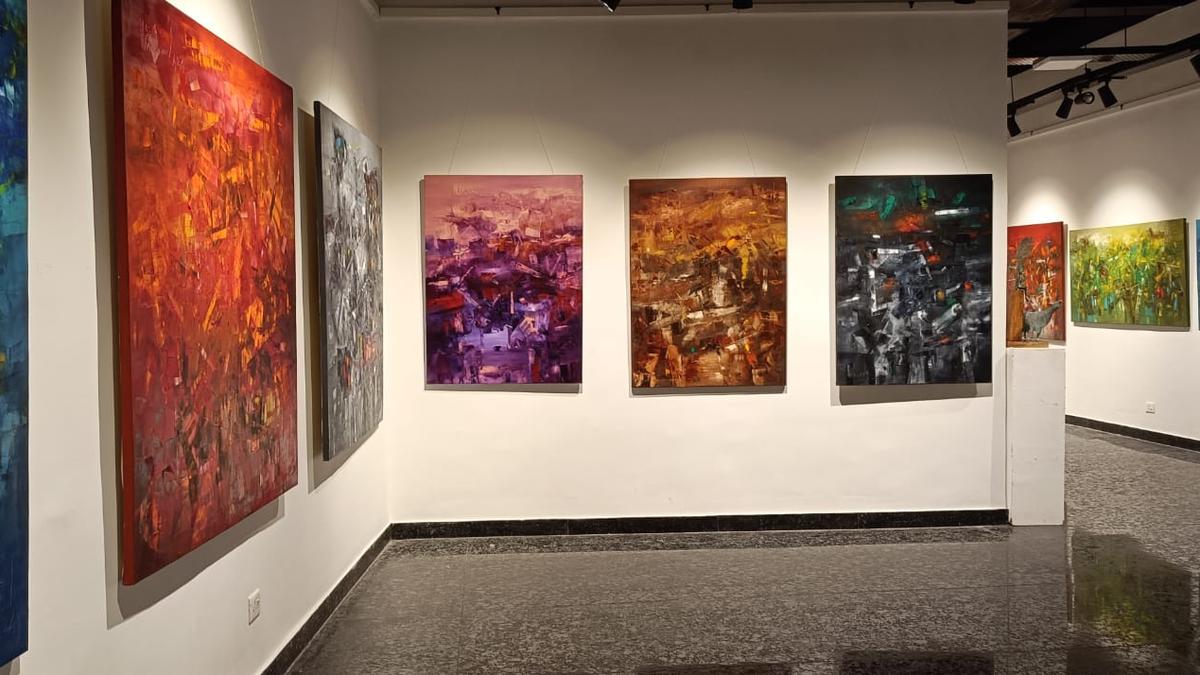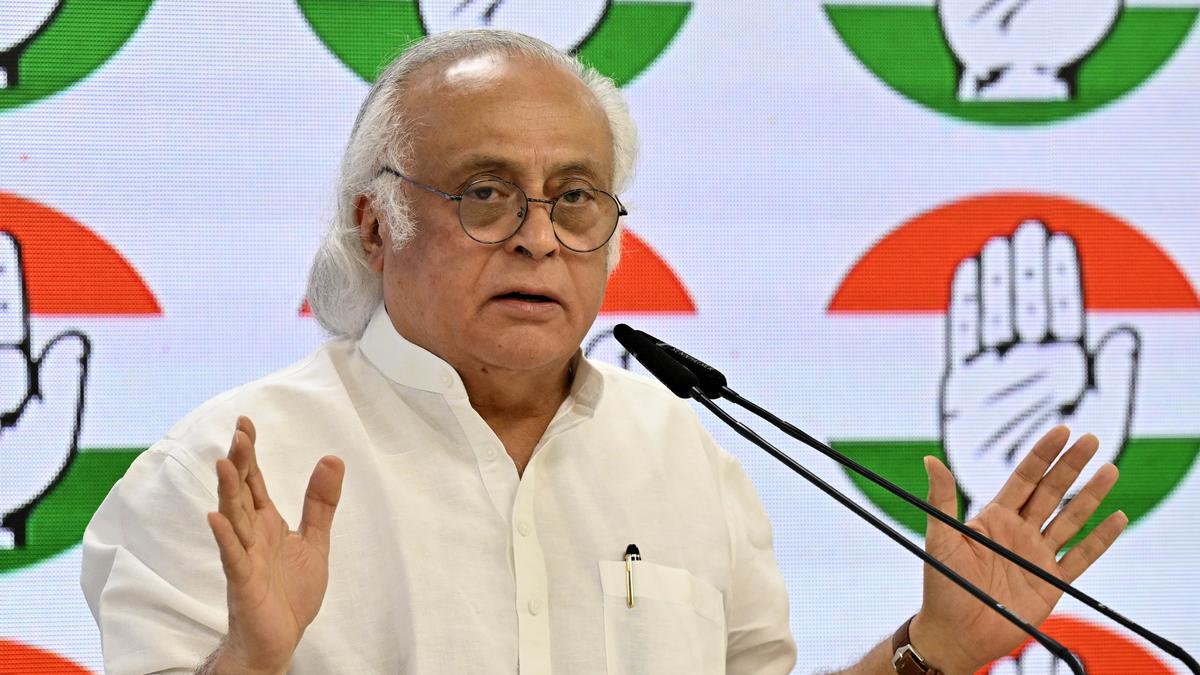Coimbatore City Police Commissioner V Balakrishnan IPS with his new book
| Photo Credit: PERIASAMY M
“Look up at the sky, and you will be amazed by the imagery emerging from there,” says V Balakrishnan IPS, city’s Commissioner of Police, as he begins to talk about his new book Enakku Innoru Mugam Irukku (Vijaya Pathipagam), a compilation of poems on vignettes from his life. One of his poems is an ode to the clouds, sometimes uncannily shaped like an island, or a bird taking off, or resembling a woman’s free-flowing wavy tresses. Is the blue sky hosting a fancy dress competition?’ he asks. “The sky can trigger your imagination, and can be calming too. It makes you realise how insignificant one is in front of Nature.”
Among others, the arrival of the grey clouds that sweep across from the Arabian Sea and the anticipation of the South West monsoon finds a poetic expression. When the rain arrives without much ado, lashing with gusto, the earth takes on a different hue. “When I jog in the morning, especially after the rains, I find the sights and smells of a rain-drenched earth invigorating. When I go for a swim and look up at the blue sky from the pool, the reflections and colours often leave me in awe,” he explains adding that the book has as many as 50 poems, that highlight major incidents, his stint in the UK as a Chevening Scholar to complete his Post Graduation in Human Rights, his trip to Meghalaya, his participation in marathons, to name few. Every poem is accompanied by a short description and is interspersed with art work done by students of Raviraj Institute of Fine Arts. “Such nuggets help readers understand the real life context. I always scribble down my thoughts in a notepad which came in handy while writing the book.”

His poem titled ‘Religion vs Religion’ calls for peace and harmony in the wake of the recent Coimbatore car blast. “Losing humanity is akin to an infertile seed…what needs to be shattered is hatred,” he writes. The accident where three trains collided in Balasore district in Odisha left him with sleepless nights and he documents it vividly. “Though sadness engulfed me, the relief operations that followed and the way the government machinery responded gave hope,” says Balakrishnan explaining that he chose the pudhukavithai style of writing while drawing inspiration from Thriuvalluvar’s couplets as well as the revolutionary poems of Bharati and Bharathidasan.
Retracing his childhood, the author of Travel Tales of a Cop (Zero Degree Publishing), says he started writing poems when he was a class V student at the Government Primary School in Kanyakumari. “When my teacher asked us to write a poem, I instantly wrote pancha paandavar ayvaraaam, bharatha poril jeyithavaraam, annan thambi ayvaraam, anbu konda paandavaraam as my mother often narrated stories from the Mahabharata to calm us (five siblings) whenever we fought,” he remembers, adding that he pored over books at the village library. “I won prizes at literary events including elocution and short story writing which gave a boost to my confidence as a writer. While in college, I became an editorial member and contributed on diverse topics to the college magazine. I make it a point to keep my creative side alive.”
Elaborating on his practice, he says he writes in the morning, especially after his exercise. “The endorphins (happy hormones) leave you feeling charged and that reflects in my writing. I also write when bored, upset or as an outlet to keep stress away,” he says with a laugh adding that budding writers can make a difference to the lives of individuals and society with their writing. “In non-fiction, our endeavour should be evidence-based writing backed by truth.”
His reading initiatives in the city including street library, auto library and libraries at police stations attempt to promote reading among children and adults. “I have enjoyed the benefits, let the children keep their creativity buzzing.”
When flags tell a story

V Balakrishnan IPS along with his wife Shweta and son Adhruth holding their new book on flags
| Photo Credit:
Special Arrangement
A picture book titled Fascinating Flags for Fun (Kamarkat Publishing) by Shweta Subbiah Balakrishnan and Adhruth Subbiah Balakrishnan turns the spotlight on flags in an interactive way. What started as a fun holiday activity for Adhruth, a grade I student, along with his mother Shweta, turned into a book that has documented 70 flags.“We looked up government websites of countries to read up more about flags,” says Shweta who runs @the_reading_elf on Instagram where she posts reviews of children’s books and also gives recommendations for children. The book packs information continent-wise followed by activities like draw your own flag, cake recipes, and a points to ponder section that puts forth questions. “ In one of the chapters, the question is on the significance of a gun that features on the Mozambique flag. There is also a revision chapter to brush up memory. The book can be enjoyed by parents and children. Did you know that India’s and Niger’s flags look similar?” asks Shweta adding, that she finds South American flags fascinating because of the imagery.
“Flags are a peek into history, geography, colours, symbols, and cultures of countries. It’s a reflection of people and their struggles. Along the way, we learn about apartheid, colonialism, and exotic birds like quetzal that can be seen only in South America. It features on the Guatemala flag,” she explains.
As you browse through the pages, you also spot similarities between the flags of Bangladesh and Japan. “It’s picture book with stories,” describes Shweta who grew up with stories of independence from her grandfathers. She believes reading helps ignite minds. “Albert Einstein’s quote ‘If you want your children to be intelligent, read them fairy tales. If you want them to be more intelligent, read them more fairy tales’ is more relevant now. As a family, my husband (City Police Commissioner V Balakrishnan) we read a lot. There’s a book out there for everything, on friendship, good touch bad touch, and more. It’s a companion for life. ”





